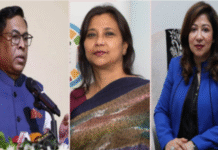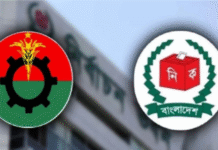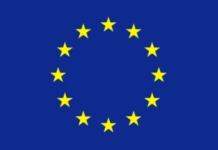
Home Minister Asaduzzaman Khan yesterday said those who built Rab are now speaking against it.
“They are running a smear campaign against Rab. They are not highlighting the positive impacts Rab has had on society. They are not talking about Rab’s war on drugs or terrorism,” he said while replying to reporters’ queries after the DC conference in the capital.
“They speak of human rights violations, but we can throw down a challenge to them — there is no country where encounters don’t take place,” Asaduzzaman said, referring to alleged shootouts involving the force.
His comments came in the wake of 12 international organisations urging UN to ban Rab from its peacekeeping missions.
On December 10, the US announced sanctions on Rab and seven of its current and former members in the face of widespread allegations of human rights abuses against the force formed in 2004.
Earlier, on November 8, 2021, the 12 organisations wrote to Under-Secretary-General Jean-Pierre Lacroix. They include Human Rights Watch (HRW), Asian Human Rights Commission and Robert F Kennedy for Human Rights, who have for the past year been campaigning to have Rab banned from the UN peacekeeping missions.
The nine other organisations are Amnesty International, International Federation for Human Rights, Civicus, World Organisation Against Torture, Asian Federation Against Involuntary Disappearances, Asian Forum for Human Rights and Development (FORUM-ASIA), Asian Network for Free Elections, Capital Punishment Justice Project, and The Advocates for Human Rights.
The letter urged the UN Department of Peacekeeping Operations to ban Rab from its missions, HRW in a statement said yesterday, adding that the department was yet to provide a formal response.
The organisations requested the department to implement a systematic requirement to disclose all previous affiliations so that a background check can be done to make sure that the peacekeeping candidate was not affiliated with Rab.
They demanded that “all uniformed personnel deployed by the UN, regardless of level or rank, are subject to systematic scrutiny of their individual human rights record prior to deployment.”
The letter pointed out that at present the screening is only done for higher ranks.
The organisations said the Bangladesh National Human Rights Commission cannot be a part of this screening process. “The NHRC cannot be objective and factual in the execution of their role in the screening process considering the ongoing reports of its politicisation and the fact that the NHRC’s legal framework limits its purview over security forces, in effect exempting them from any independent oversight.”
Including Rab in its peacekeeping operations presents a “reputational risk” for the UN, it said.
There is “consistent and credible evidence of abuses including extrajudicial killings, torture, and enforced disappearances by members of this unit since its creation in 2004,” the letter also read.
The organisations pointed out that at the Convention Against Torture in 2019, the Committee against Torture stated that it is “concerned at reports that personnel that have served with the Rapid Action Battalion have frequently been deployed for service with United Nations peace missions”.
“In March 2021, United Nations High Commissioner for Human Rights, Michelle Bachelet noted that ‘allegations of torture and ill-treatment by the Rapid Action Battalion have been a long-standing concern’,” said the letter.
HRW further pointed out that on December 5, the UN Working Group on Enforced and Involuntary Disappearances voiced concern about Rab being allowed to participate in UN peacekeeping operations, without any previous investigation into its involvement with human rights violations, and added that officers “involved in, or willing to tolerate abuses appear to be promoted and rewarded within the Bangladesh security and law enforcement forces”.
“We are concerned that those committing grave human rights violations within Bangladesh are being rewarded by the government with deployment to UN missions abroad,” stated the letter further.
Data from November 2021 shows that Bangladesh was the top contributor to UN peacekeeping missions with over 6,300 personnel deployed. Of this, the lion’s share came from the combined forces, which also deploys to Rab, while a small minority belonged to Bangladesh Police.
As his attention was drawn to the matter, Commander Khandaker Al Moin, director of Rab (legal and media wing), said, “We have learnt of this issue from media, we have not received any official letter regarding this.”


 For all latest news, follow The Daily Star’s Google News channel.
For all latest news, follow The Daily Star’s Google News channel. 







